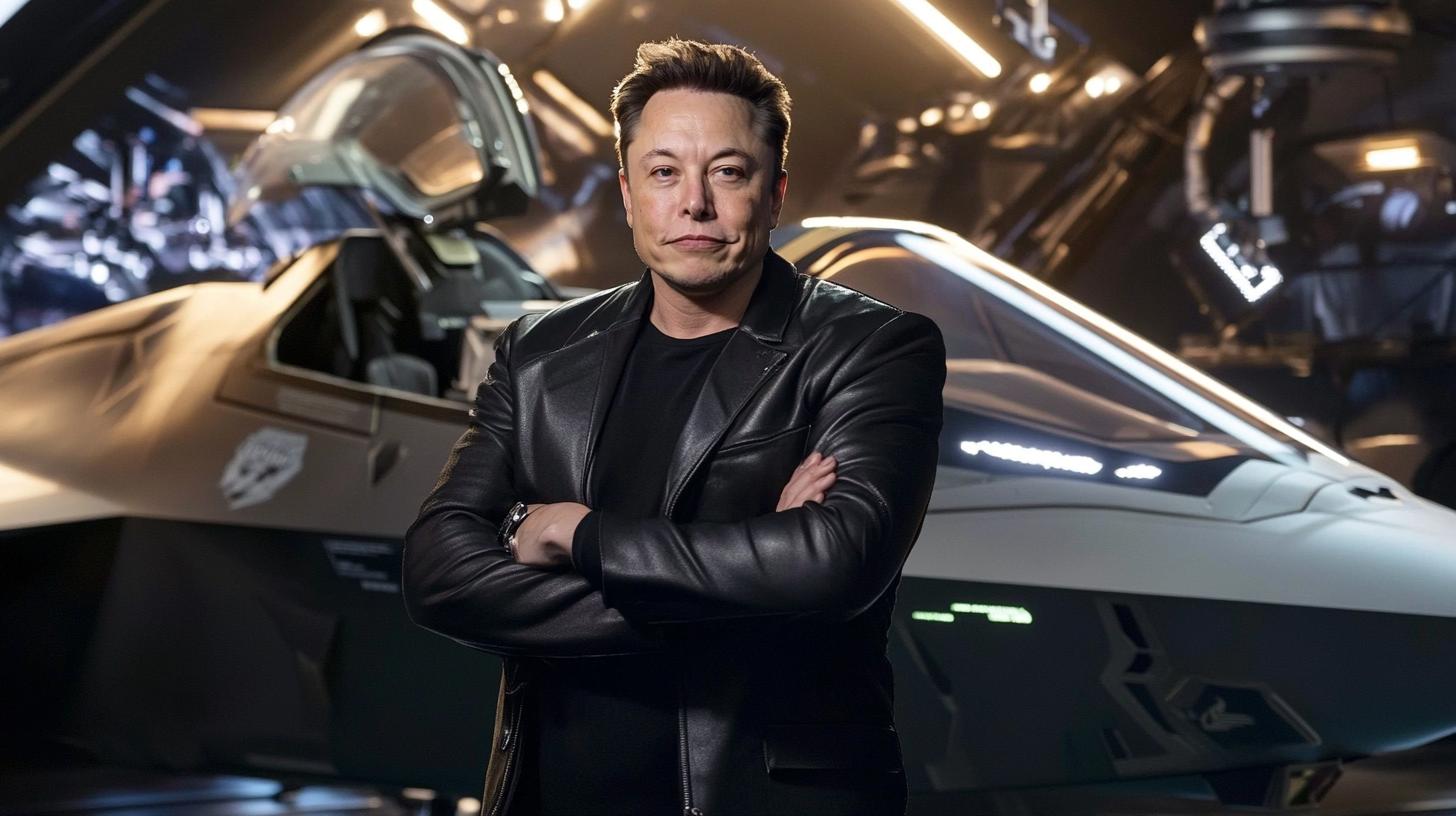Billionaire entrepreneur Elon Musk has sparked a debate by suggesting that the American F-35 fighter jets have fallen short of expectations due to overwhelming design demands.
In a recent social media post, Musk commented on what he perceives as fundamental design flaws of the F-35, noting that the attempt to satisfy too many requirements made the jets unnecessarily expensive and complex. This broad attempt to address diverse needs resulted in the aircraft failing to excel in any particular area.
Furthermore, Musk expressed his belief that traditional piloted fighter jets are becoming obsolete with the advancement of drone technology. He predicted that drones would inevitably replace human pilots, making the latter susceptible to high risks in modern warfare.
Musk’s statements add a new dimension to ongoing discussions in military and aviation circles about the future of aerial combat technology. His critique urges reconsideration of how we approach aircraft design and deployment amid rapid technological advancements.
As the CEO of multiple frontier tech companies, Musk’s opinions often attract significant attention and can influence debates in various industries. With the rise of drones becoming an increasingly prominent topic, Musk’s comments will likely continue to fuel conversations around the future of aviation and military strategy.
His bold assertions invite policymakers and military strategists to rethink the reliance on traditional fighter jets and explore innovations that drones and unmanned technologies might bring to modern combat scenarios.
Are Piloted Fighter Jets a Relic of the Past? Drones Might Hold the Key to Future Warfare
In a rapidly evolving world, the discourse on the future of aerial combat technology is taking a new turn. While billionaire entrepreneur Elon Musk’s critique of the F-35 fighter jets has grabbed headlines, it also opens up a broader conversation about the implications of drone technology on the development of humanity and new technological landscapes.
Technological Advancements and Strategic Shifts
As drone technology progresses, it’s crucial to understand the potential advantages and disadvantages of transitioning from piloted jets to unmanned aerial vehicles (UAVs). Drones offer significant advantages, such as reduced risk to human pilots, lower production costs, and the ability to operate in environments too dangerous for humans. This shift could redefine military strategies, emphasizing remote warfare and cybersecurity, rather than traditional dogfights.
However, this transition presents challenges. Reliance on drones raises concerns about cybersecurity threats, as these networks could become targets for hacking and electronic warfare. Furthermore, ethical questions emerge regarding decision-making in life-or-death situations by autonomous machines.
The Economy and Infrastructure: Pros and Cons
Economic impacts are another consideration. While drones can lower operational costs, significant investments are needed to develop the necessary infrastructure and train military personnel on new systems. New industries could emerge around drone technology, potentially boosting economic growth in tech and defense sectors. Nevertheless, this shift might lead to job displacement for those trained in traditional aircraft operations and maintenance.
Controversies and Ethical Debates
The introduction of autonomous combat drones also sparks ethical debates. Is it acceptable for machines to make life-and-death decisions? Can we ensure unbiased programming in these machines with life-altering capabilities? These questions are vital as we ponder the future of warfare.
Impact on Humanity and Technological Progress
The adoption of drone technology represents a paradigm shift in warfare, possibly affecting international relations, power dynamics, and global peace efforts. Will drones contribute to a more stable world by minimizing human risks, or increase the likelihood of conflict due to ease of use?
Looking Ahead: What’s Next?
As drones become more integral to military strategies, nations need to balance technological innovation with ethical responsibility. This shift raises questions like:
– How will the international community regulate the development and use of combat drones?
– Can nations collaboratively establish guidelines to prevent misuse?
– What role will global governance bodies play in overseeing drone deployment in warfare?
As humanity strides forward in this new technological era, fostering open dialogue and collaboration will be imperative to ensuring these advances serve the greater good.
For more insights into how emerging technologies influence our lives, explore innovative tech companies, space exploration, and artificial intelligence advancements.
How will we navigate the future, and what will emerge as the new norms in warfare technology? Only time will tell as we continue to push the boundaries of innovation and ethical considerations.







